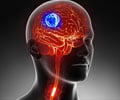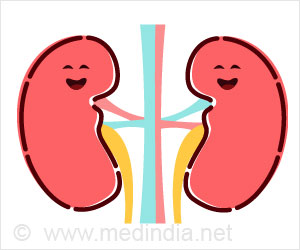Discover how olive oil-derived drug– 2-OHOA exhibits promising results in early trials against aggressive brain cancer glioblastoma.
- A new drug, 2-OHOA, derived from olive oil, shows promise in fighting glioblastoma, an aggressive brain cancer
- The medication penetrates tumors and triggers cancer cells to undergo self-destruction via a mechanism called autophagy
- The drug offers a safe and effective option for shrinking tumors and prolonging the life of cancer patients
A Phase 1/2A trial of idroxioleic acid: first-in-class sphingolipid regulator and glioma cell autophagy inducer with antitumor activity in refractory glioma
Go to source).
Olive Oil Compound's Breakthrough in Brain Cancer Battle
A new drug called 2-OHOA or idroxioleic acid, derived from oleic acid, a key component in animal and vegetable fats such as olive oil, has shown promising results in early clinical trials.This innovative treatment targets glioblastoma by infiltrating tumors and inducing cancer cells to self-destruct through a process called autophagy. The drug essentially tricks cancer cells into eating themselves, halting their spread and reducing their harmful impact.
The initial Phase 1/2A trial, involving 54 patients with various advanced tumors, demonstrated the drug's safety and tolerability. Patients took various doses of 2-OHOA, from as little as 500 mg to as mighty as 16,000 mg daily, in their fight against cancer.
Notably, patients with glioblastoma experienced encouraging responses, with some tumors stabilizing or shrinking. One patient even saw sustained benefits for over two and a half years.
Did You Know?
Olive oil’s polyphenolic content has promoting health features, including anti-mutagenic, anti-inflammatory, anti-thrombotic, anti-atherogenic, and anti-allergic effects.
The Science Behind the Magic: How does 2-OHOA Work
2-OHOA works by altering the lipid composition of cancer cells, disrupting their survival pathways. It acts as a sphingolipid regulator, activating enzymes that manage cell membrane composition and ultimately, cell fate.Additionally, the drug may improve energy production within the mitochondria of glioma cells, further hindering their growth.
These findings were crucial in establishing a safe and recommended dose of 12,000 mg per day, balancing effectiveness with patients' well-being.
Phase 1/2 study lead Dr. Juanita Lopez, Consultant Medical Oncologist at The Royal Marsden NHS Foundation Trust, said, "Glioblastoma is an incredibly difficult disease to treat and patients with advanced disease have very poor outcomes, often living for just a year after their diagnosis. There hasn't been an effective new treatment for this patient group in nearly two decades, so drug development urgently needs to be accelerated.
Read More to Know About ‘Brain-Boosting Elixir: How Opting for Olive Oil Supports Brain Health’
Looking Forward: Paving the Way for Further Research
Recognizing its potential, both the European Union and the United States have granted 2-OHOA orphan drug designation for treating glioblastoma, highlighting its significance in the fight against this rare and challenging disease.While the findings are preliminary, they represent a significant step forward. The successful Phase 1/2A trial paves the way for further investigation, with a global Phase 2b/3 trial currently underway to assess the drug's efficacy in newly diagnosed glioblastoma patients.
In conclusion, the olive oil-based drug – 2-OHOA not only offers a safe and effective treatment for brain cancer but also opens doors for exploring novel avenues in cancer therapy. As research progresses, this groundbreaking discovery holds the promise of a new era in glioblastoma treatment, offering renewed hope to patients and their families.
Reference:
- A Phase 1/2A trial of idroxioleic acid: first-in-class sphingolipid regulator and glioma cell autophagy inducer with antitumor activity in refractory glioma - (https://www.nature.com/articles/s41416-023-02356-1)
Source-Medindia
















